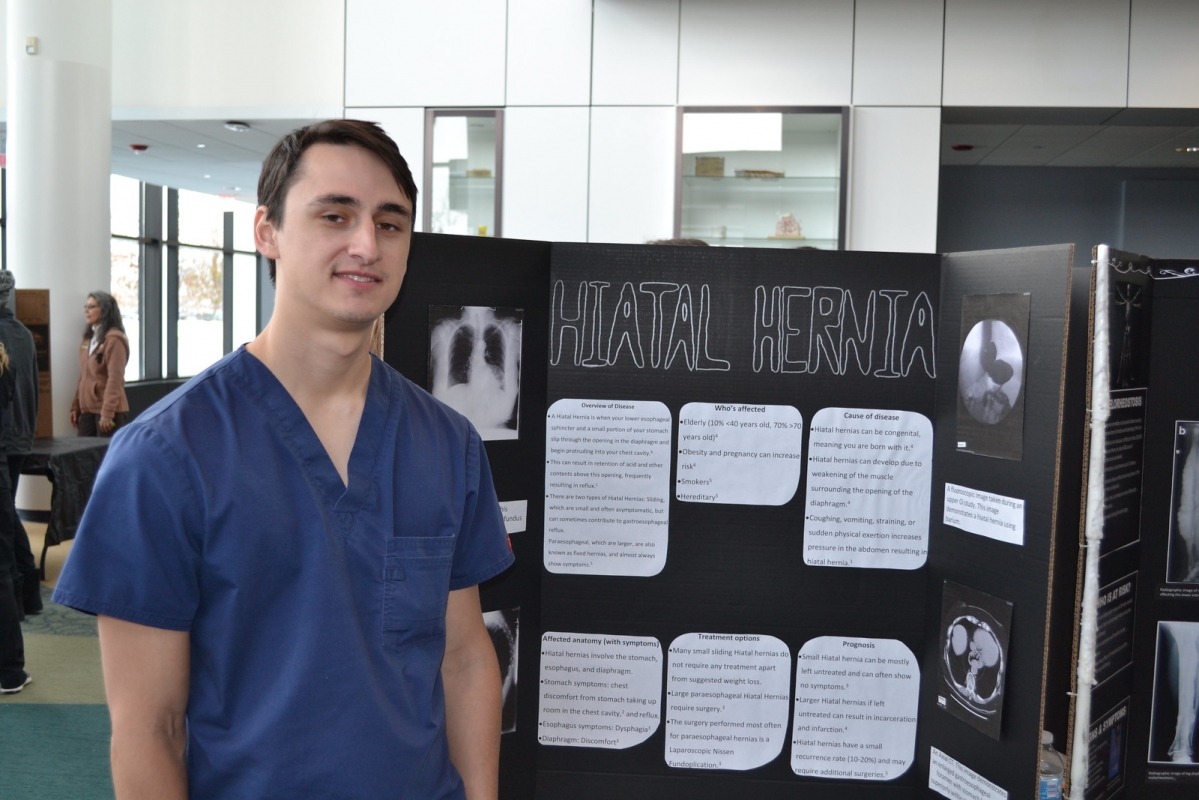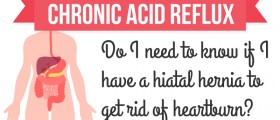Hiatal Hernia-Overview
Any time an internal body part pushes into an area where it doesn't belong, it's called a hernia. The diaphragm (the sheet of muscle that separates the chest from the abdomen) normally has a small opening (hiatus) that allows the esophagus to pass through on its way to connect to the stomach. In a hiatal hernia (also called hiatus hernia) the stomach bulges up into the chest through the hiatus.

There are two main types of hiatal hernias: sliding and paraesophageal. In a sliding hiatal hernia, the stomach and the section of the esophagus that joins the stomach slide up into the chest through the hiatus. This is the more common type of hernia (it accounts for 95 per cent of all hiatal hernia). In paraesophageal hiatus hernia, the esophagus and stomach stay in their normal locations, but part of the stomach squeezes through the hiatus, landing next to the esophagus.
Causes of Hiatus Hernia
A hiatal hernia happens when weakened muscle tissue allows the stomach to bulge up through the diaphragm. It's not always clear why this happens, but pressure on the stomach may contribute to the formation of hiatal hernia. Possible causes of this condition are: genetics (inherited weakness in that muscle), injury to that area of the body, having an unusually large hiatus, or intense and long-lasting pressure on the surrounding muscles (such as, when vomiting, coughing, lifting heavy objects, etc.).
Symptoms
People who have small hiatal hernias may not have any symptoms. However, with large hiatal hernias, there certainly will be symptoms that present themselves. The most common symptoms of this condition are: chest pain, nausea, heartburn, belching, etc. It is important that a person consult a doctor as soon as they experience any of these symptoms. The doctor will then choose the best course of treatment.
Hiatal Hernia Pain
There could be many reasons that a person feels pain when having hiatal hernia: obesity (the weight puts extra pressure on that area), stress, acid reflux, smoking, excessive drinking, etc. The pain, usually described as that of heartburn, occurs in the upper part of the stomach or the chest. Sometimes, it can be quite severe, resembling that of a heart attack.
There are a few things that may help relieve the pain. Of course, if one consults a doctor, he will prescribe the proper medication. Also, one might try eating at least four hours before bed, chewing food properly, not overeat, avoiding spicy and acidic food, etc.
Treatment of Hiatal Hernia
The treatment for this condition might include surgery to help repair the hernia (but this is only necessary in small number of cases), and medication that help heal the heartburn (antacids that neutralize stomach acid, medications to reduce acid production, and medication that heal the esophagus).
- medlineplus.gov/hiatalhernia.html
- www.nhs.uk/conditions/hiatus-hernia/
- Photo courtesy of COD Newsroom by Flickr: www.flickr.com/photos/codnewsroom/45368611944/

















Your thoughts on this
Loading...